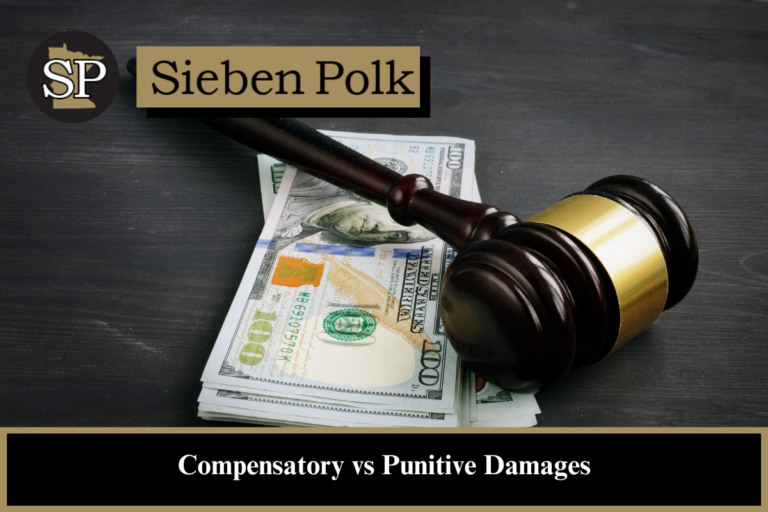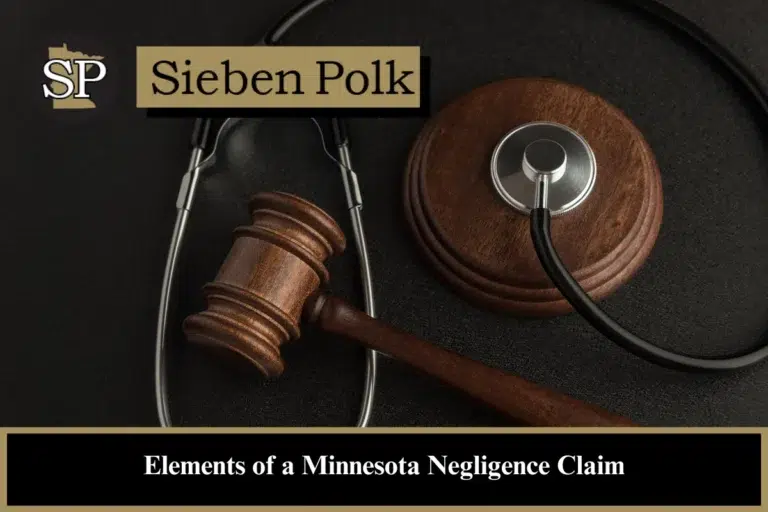In personal injury claims, you may be entitled to two types of damages: compensatory and punitive damages. These two types of damages serve different purposes and are calculated in distinct ways. Understanding the differences between them is crucial to determining the compensation you may receive.
What Are Compensatory and Punitive Damages?
Compensatory Damages
Compensatory damages are designed to reimburse you for the losses you’ve suffered due to an accident caused by someone else’s negligence. These damages aim to restore your financial situation to the way it was before the accident. Examples of losses that can be compensated include:
- Medical expenses
- Lost wages
- Property damage
- Emotional distress
- Reduced quality of life
Punitive Damages
Punitive damages are meant to punish the defendant for egregious behavior, such as malice, intent to harm, or a deliberate disregard for safety. These damages go beyond compensating the plaintiff and are awarded to deter others from committing similar acts of misconduct.
How Are Compensatory and Punitive Damages Calculated?
Calculating Compensatory Damages
The total amount of compensatory damages you may be entitled to depends on various factors, such as:
- Severity of injuries: More severe injuries typically result in higher settlements.
- Lost wages: If your injuries prevent you from working, this loss will be considered.
- Property damage: Costs to repair or replace damaged property.
- Mental trauma: Emotional distress caused by the accident.
- Inability to enjoy life activities: Compensation for hobbies or activities you can no longer participate in.
Determining Punitive Damages
Punitive damages are not automatically awarded. In Minnesota, judges use several factors to determine if punitive damages are appropriate. These include:
- The seriousness of the hazard caused by the defendant’s actions
- The financial benefit the defendant gained from the misconduct
- The duration of the misconduct and any attempts to conceal it
- The defendant’s knowledge of the risks posed by their actions
- The behavior of the defendant upon discovery of the misconduct
- The involvement of employees in the misconduct
The defendant’s financial condition and other punishment considerations
Are Compensatory and Punitive Damages Always Awarded?
Compensatory Damages
Compensatory damages are awarded in all successful personal injury claims, as long as you can prove the losses you’ve suffered due to the accident. The specifics of the damages vary depending on your individual case.
Punitive Damages
Punitive damages are rarely awarded in personal injury claims. They are only granted when the defendant’s actions are deemed to be particularly harmful or reckless. These damages are often based on the defendant’s behavior, which is why they are less common in most personal injury cases.
Why Legal Representation Is Crucial for Your Personal Injury Case
Having legal representation can make a significant difference in your personal injury case. Experienced attorneys can help:
- Evaluate your case: Understand what types of damages you may be entitled to.
- Negotiate with insurance companies: Ensure you receive a fair settlement.
- Fight for punitive damages: Determine if your case meets the criteria for punitive damages.
At Sieben Polk P.A., our skilled personal injury attorneys have decades of experience and a proven track record of success. We are committed to securing the compensation you deserve.
Contact Sieben Polk P.A. for a Free Consultation
If you or a loved one has been injured, Sieben Polk P.A. is here to provide expert legal guidance. We offer a free consultation and work on a contingency fee basis—you only pay us if we win your case.
Call (651) 437-3148 or contact us online to schedule your consultation today.




